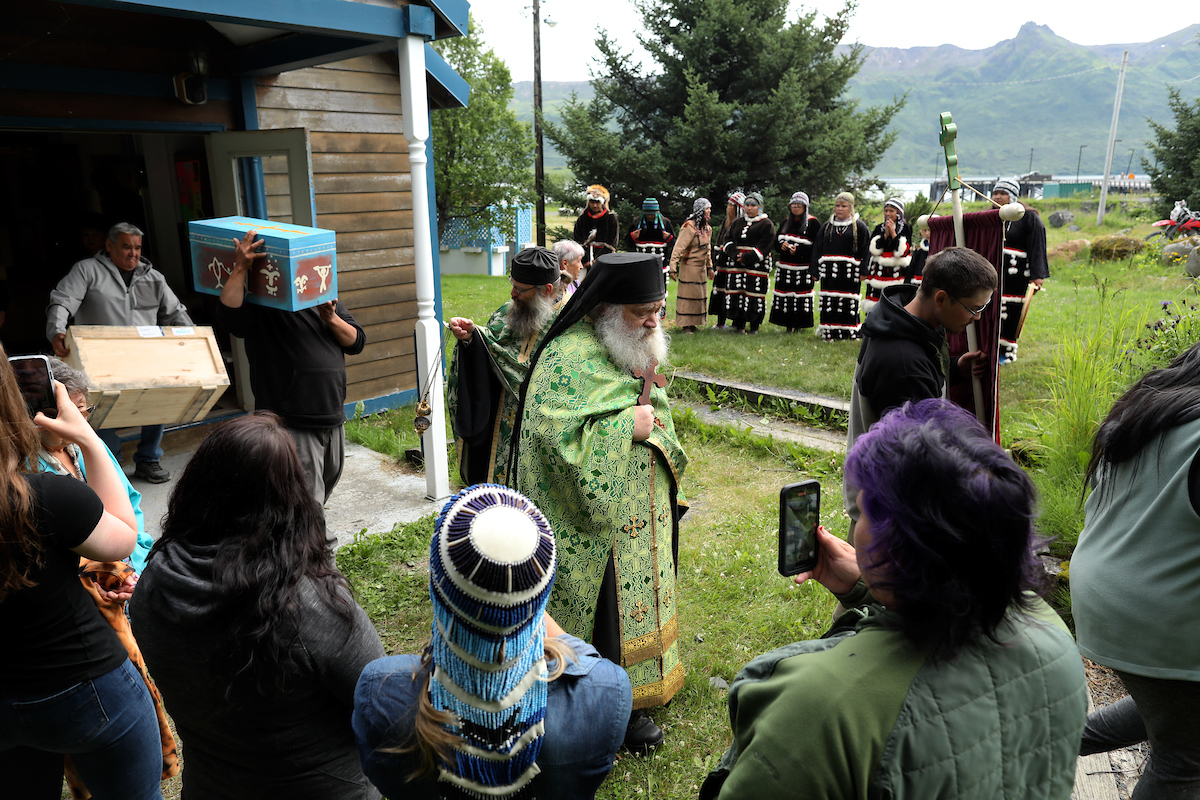
- Details
- By Jenna Kunze
An Alaska Native museum in the state’s Kodiak Archipelago is using a nearly $100,000 federal grant to build a private online database to help unite local tribes with their ancestors.
The Alutiiq Museum—a non-profit organization whose mission is to preserve and share the culture of the Alutiiq Alaska Native tribal people— will lead the two year project, called ‘Angitapet’, meaning ‘We Are Returning Them’ in Alutiiq/Sugpiaq.
The museum has identified at least 12 institutions in the US that hold the remains of at least 168 Kodiak Alutiiq ancestors, said Amanda Lancaster, the museum’s Curator of Collections and repatriation coordinator since March 2017. Those ancestors are subject to return under a human rights law called NAGPRA, or the native American Graves Protection and Repatriation Act of 1990Native American Graves Protection and Repatriation Act of 1990, which requires museums and universities holding Indigenous human remains and artifacts to catalog those remains and return them to their tribal nations.
Lancaster said that the number of Kodiak Alutiiq ancestors held in collections across the country is likely to go up, but the current figure comes from federal data museum staff has culled itself, and from personally reaching out to more than 70 institutions across the country.
“One of the biggest hurdles with NAGPRA is that there is no central database,” Lancaster told Native News Online. “So tribes will do all this work to possibly repatriate the ancestors, and then find out they were claimed 10 years ago.”
To solve that problem on a regional level, Lancaster said, Angitapet will give representatives from Kodiak’s ten federally recognized tribes access to the database. There, they will see a list of remains affiliated with their communities, and be able to track each ancestor’s repatriation status.
Additionally, Lancaster said, museum staff will consult with each tribal government to determine their repatriation needs, identify claims, and plan for future repatriations.
The Alutiiq Museum Is one of 16 tribes and 28 museums to receive a 2023 grant from the National Park Service to to assist in the consultation, documentation and repatriation of ancestral remains and cultural items under NAGPRA, announced in August.
Outside of NAGPRA, the Alutiiq Museum is still working to bring home a Sugpiaq/Alutiiq girl, Perascovia Friendoff, who died while attending the nation’s flagship off-reservation boarding school in Pennsylvania more than a century ago, and was buried there.
In 1901, eleven Alaska Native children were taken by a government agent from a Baptist Mission orphanage in Southwest Alaska to a boarding school in the eastern half of the lower 48 states, some 6,000 miles away: Carlisle Indian Industrial School. Among them were two Sugpiaq/Alutiiq girls: Anastasia Ashouwak, and Perascovia Friendoff, who would both die of tuberculosis and be buried on school property.
In July 2022, Native News Online followed the Anastasia’s family on their journey collecting their ancestor’s remains in Pennsylvania, and returning them home to Alaska for reburial after 121 years away.
Her repatriation was facilitated by The Alutiiq Museum. But the museum was unable to claim their second relative, Perascovia, at the same time, because of the Army’s strict regulations requiring a signed affidavit for each child’s closest living relative.
According to museum staff Derehich Chya, the museum is still conducting genealogy research and attempting to track down Perascovia’s distant living relatives in order to fulfill the Army’s requirements for return.
More Stories Like This
Navajo Resources and Development Committee Issues Notice on Livestock Inspection RequirementsAmerican Prairie, Tribal Coalition Files Protest Over Rescinded Grazing Rights
Northern Cheyenne Push Back Against Trump Administration’s Effort to Alter Little Bighorn History
Florida Man Sentenced for Falsely Selling Imported Jewelry as Pueblo Indian–Made
Navajo Nation Declares State Of Emergency As Winter Storm Threatens Region
Help us defend tribal sovereignty.
At Native News Online, our mission is rooted in telling the stories that strengthen sovereignty and uplift Indigenous voices — not just at year’s end, but every single day.
Because of your generosity last year, we were able to keep our reporters on the ground in tribal communities, at national gatherings and in the halls of Congress — covering the issues that matter most to Indian Country: sovereignty, culture, education, health and economic opportunity.
That support sustained us through a tough year in 2025. Now, as we look to the year ahead, we need your help right now to ensure warrior journalism remains strong — reporting that defends tribal sovereignty, amplifies Native truth, and holds power accountable.
 The stakes couldn't be higher. Your support keeps Native voices heard, Native stories told and Native sovereignty defended.
The stakes couldn't be higher. Your support keeps Native voices heard, Native stories told and Native sovereignty defended.
Stand with Warrior Journalism today.
Levi Rickert (Potawatomi), Editor & Publisher


